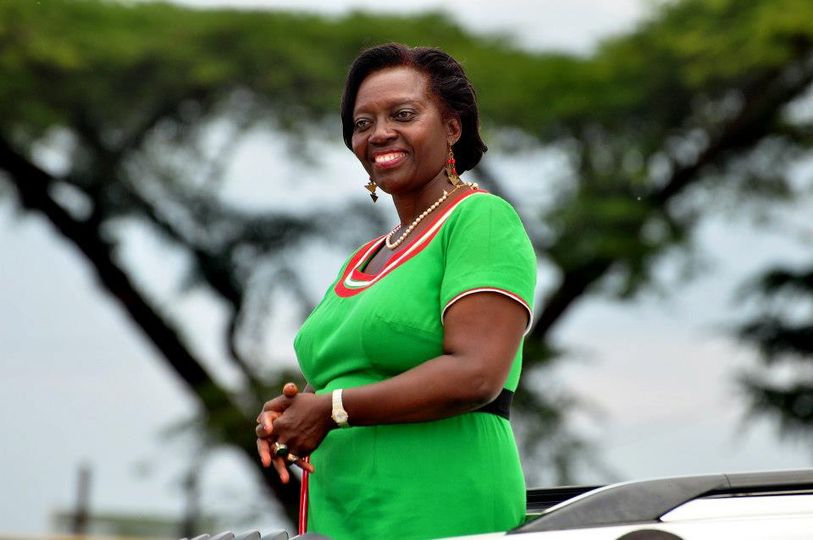Mystery and Mayhem: Ugandan Opposition Leader Dr Kizza Besigye Disappears in Nairobi
The enigmatic disappearance of Ugandan opposition leader Dr Kizza Besigye on Kenyan soil has stirred a cauldron of controversy, raising questions about political oppression, cross-border collaboration, and human rights in East Africa. Besigye, an ardent critic of Ugandan President Yoweri Museveni, vanished on November 17, 2024, while attending events in Nairobi, leaving a trail of unanswered questions and mounting tension between Kenya and Uganda.
A Day Turned Dark
Dr Besigye arrived in Kenya to attend Narc-Kenya leader Martha Karua’s book launch, Against the Tide. However, despite his prominent role on the guest list, he was a no-show, sparking immediate concern among his hosts and allies.
According to eyewitness accounts, Besigye checked into the Waridi Paradise Hotel on November 16, 2024, and later that day took a taxi to 108 Riverside Apartments for a scheduled meeting. His taxi driver, who waited for hours, stated that Besigye failed to return and ignored several attempts to reach him via phone. By 4 a.m., the driver abandoned the wait, deeply unsettled by the unusual silence.
Family members and associates soon raised alarms, with his wife, Winnie Byanyima, accusing Ugandan authorities of orchestrating his abduction. Byanyima, currently an international diplomat, claimed that Besigye had been forcibly taken and transported to a military detention facility in Uganda. While Ugandan officials have neither confirmed nor denied these allegations, their silence has only fuelled suspicion.
Political Web of Intrigue
The Pan-African Opposition Leaders Solidarity Network, led by Karua, issued a scathing statement condemning the incident. Karua expressed outrage over the blatant violation of international human rights and the use of Kenyan soil for politically motivated abductions.
“This despicable act strikes at the heart of democracy. If a prominent leader like Besigye can vanish without a trace, what hope is there for the ordinary citizens in Uganda or Kenya?” Karua demanded in a fiery press briefing.
Further suspicions arose when it was revealed that Besigye’s visit coincided with rising tensions in Nairobi, including anti-Uganda protests and a suspicious fire at Uganda House. Authorities have yet to link these events directly, but the timing has raised eyebrows.
A Trail of Accusations
The abduction of Dr Besigye is not an isolated incident. Activists claim that Kenyan and Ugandan security agencies have developed a worrying pattern of targeting political dissidents through covert operations.
Karua’s statement alleged the existence of a shadowy “abduction squad” operating within Kenya, potentially with state support. “We must question how such abductions occur without the knowledge or complicity of authorities. This squad is a threat to democracy in the region,” she warned.
Meanwhile, the Ugandan government continues to deny involvement. A spokesperson insisted that Besigye’s disappearance was unrelated to state operations. However, critics argue that Uganda’s track record of silencing dissenters through dubious means casts doubt on their claims of innocence.
Calls for Justice
Human rights organisations, both local and international, have rallied behind Besigye’s family, demanding his immediate release and a full investigation into the circumstances of his disappearance.
The Kenya Human Rights Commission released a strongly worded statement accusing both nations of undermining civil liberties. “This incident is a chilling reminder of the lengths to which regimes will go to stifle dissent,” the statement read.
International watchdogs, including Amnesty International, have joined the chorus of condemnation, urging the Kenyan government to prioritise transparency and cooperation in resolving the case.
Regional Implications
The incident has strained the already fragile relations between Kenya and Uganda. Regional leaders are under pressure to address allegations of cross-border security collaborations targeting political activists.
This development also highlights a growing trend of authoritarianism in East Africa, where opposition figures face increasing threats to their safety. Critics warn that such tactics could destabilise the region, erode public trust in governance, and spark unrest.
A Broader Crisis
The abduction has reignited discussions about the safety of opposition leaders in East Africa. Dr Besigye’s ordeal is seen as emblematic of the challenges faced by those who dare to challenge entrenched political elites.
Karua and other opposition leaders are now pushing for reforms to ensure that cross-border collaboration respects international human rights law. “We must dismantle these systems of oppression before they dismantle our democracies,” she declared.
The Road Ahead
As the mystery deepens, the pressure mounts on Kenyan authorities to explain how such a high-profile disappearance could occur. The Ugandan government, too, faces scrutiny for its alleged role in the abduction.
For now, Dr Besigye’s whereabouts remain unknown, and his supporters are left grappling with the grim reality of political activism in a region where power often trumps justice.
This case serves as a stark reminder of the fragility of democracy and the enduring struggle for freedom in East Africa. It is a test of resilience—not just for Besigye and his allies, but for the entire region as it grapples with the shadows of authoritarianism and the hope for a brighter, freer future.
-
Sale!

CURING HYPERTENSION: Simple Healing Secrets Revealed
Original price was: $20.00.$7.00Current price is: $7.00. Add to basket -
Sale!

Diabetes Reversal: Stop Medication and Live Worry-Free For Life
Original price was: $20.00.$5.00Current price is: $5.00. Add to basket -
Sale!

The Rise of the Silent
Original price was: $7.00.$3.00Current price is: $3.00. Add to basket -
Sale!

Win Back Your Financial Freedom: A Guide to Build Your Wealth
Original price was: $7.00.$3.00Current price is: $3.00. Add to basket




